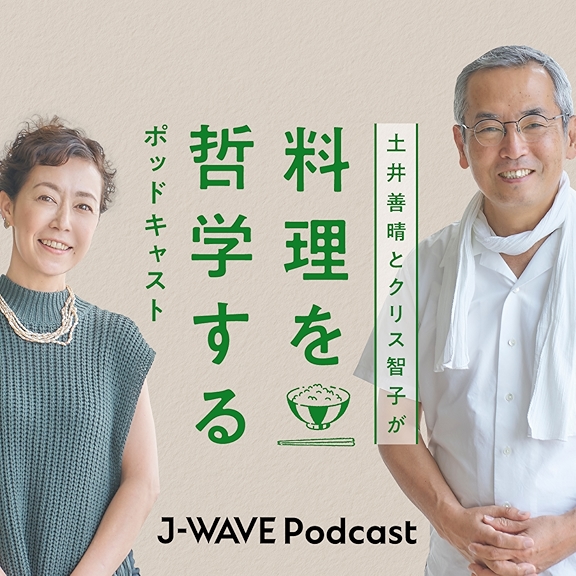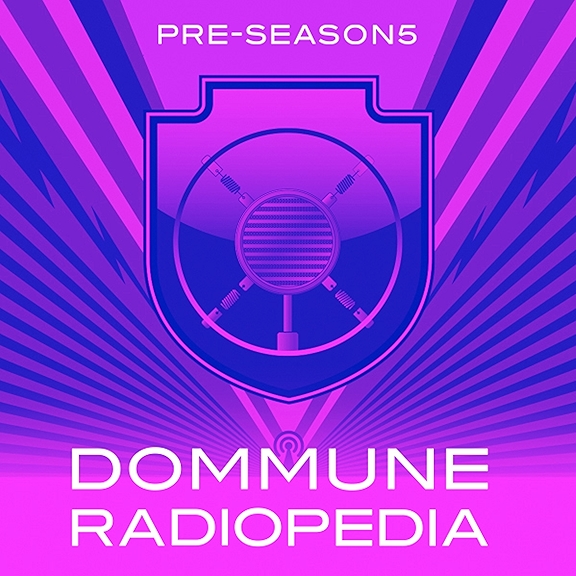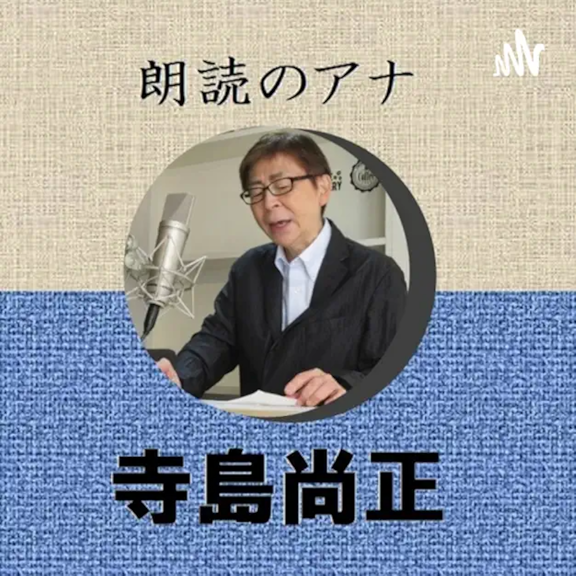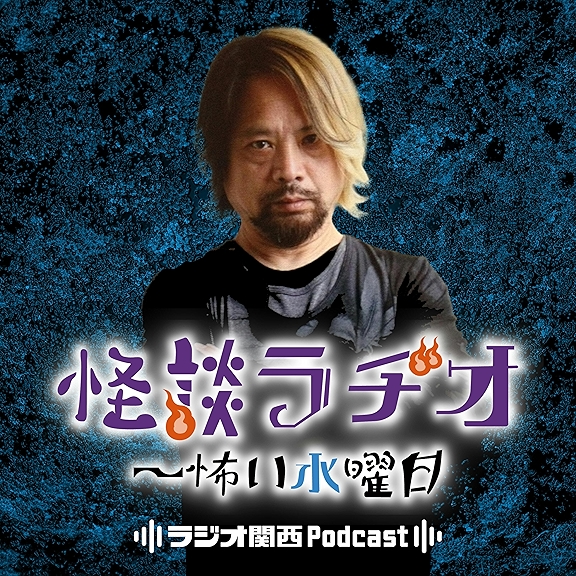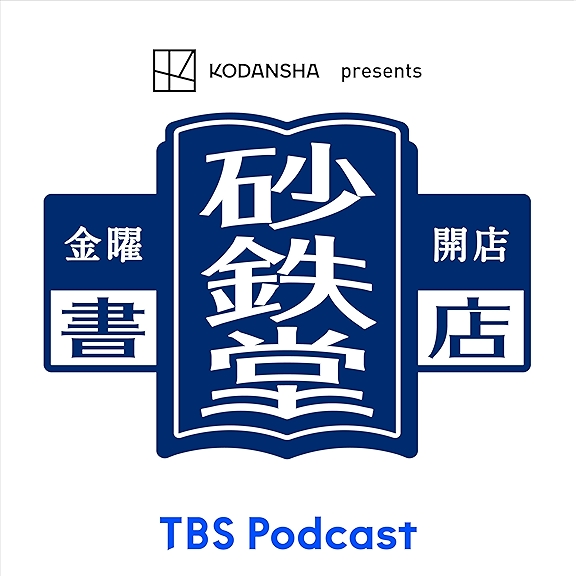
Ep 110 - Content Creation Expert "Coco Mocoe"
On this week's episode, I have content creation expert "Coco Mocoe”. Tune in as we talk about her unique eye on how to spot trends for the future, as well as what different social media platforms due for creators. We also discuss her thoughts on brand deals and what she looks for and her hopes and goals for the future.
Show Notes
Coco Mocoe on Instagram: https://www.instagram.com/cocomocoe/
Coco Mocoe on TikTok: https://www.tiktok.com/@cocomocoe?lang=en
Coco Mocoe on YouTube: https://www.youtube.com/@UC7MC6lTh3ui3_id2n-vnlPQ
Michael's Online Screenwriting Course - https://michaeljamin.com/course
Free Screenwriting Lesson - https://michaeljamin.com/free
Join My Newsletter - https://michaeljamin.com/newsletter
Autogenerated Transcripts
Coco Mocoe:
Again, also with TikTok, it's always about reinventing, even though I always talk about marketing, but I feel like every three months I have to find a new way to present the same information that I've been talking about. So truly the best creators are the ones that are able to reinvent themselves, even though they're still providing the same information, but finding new ways to bring it to the feed
Michael Jamin:
You're listening to, what the hell is Michael Jamin talking about? I'll tell you what I'm talking about. I'm talking about creativity, I'm talking about writing, and I'm talking about reinventing yourself through the arts.
Hey everyone, it's Michael Jamin. Welcome back. I have a very interesting guest for everyone today. So anyone who's listening to my podcast for any amount of time, I've always said, if you want to break into Hollywood, just start doing it. Stop asking permission, start. Just make it count on social media and just start posting whatever it is you want to be good at. Make a dedicated account to proving how good you are at this one thing, whether it's writing, performing music, whatever it is, and let's just see where it goes from there. Because if you can't do that, well then Hollywood's not going to pay you to do it. You got to do it for yourself. And so my next guest is an expert in this field because not only does she make a living out of predicting trends about people who've done this before, but she's doing it herself in building her own presence online. And content absolutely is essential. I turn to it when I have questions. So please welcome Coco Moko. Thank you so much. Coco Moko, which I love your name by the way.
Coco Mocoe:
Thank you. Thank you so much for having me. It's so funny when I made my username, my real name's Colleen, but I go by Coco Moko, and when I made the name, I didn't know my account would blow up, and so my managers were like, let's keep it though. It has a good ring to it. It does.
Michael Jamin:
But tell me, okay, so I know you've made a living at it doing this, but before you started doing it for yourself, who were you working for?
Coco Mocoe:
Yes. It's such a great story too. It was kind of divine timing, I guess. So I studied marketing in college, and then after college, my family's from the LA area, so I was super lucky to just live in LA. And I started a job that I got off Craigslist, and it ended up being this website called Famous Birthdays. I don't know if you've heard of it. It's very Gen Z Young. It's kind of like Wikipedia, but at the time, famous Birthdays was the only website really documenting YouTubers and at the time, musically kids. And so we had a really big audience of 12 year olds. And so I got hired there and my job was to run the musically, which had then turned to TikTok. So I was on the app early, and then the founder of Famous Birthdays, his name's Evan, he's like, if you ever see someone on your free page that you think is going to be famous, just invite them in and we'll interview them.
And shortly after that was when I saw Charlie Delio when she was really early. We invited her in and we were her first ever interview, and that went super viral. And then there was a few others from that kind of era of kids and because of the videos that I was working on at Famous birthdays that were getting, I think one of the videos with Charlie Delios at 40 million Views on YouTube. And because we got an early, so, but then from there, I then got hired at buzzfeed, and I was at Buzzfeed for three and a half years where I was working on the backend with strategy, coming up with videos, and it was really just my job to go into meetings with different brands and creators and stuff and just tell them what I think the upcoming trends will be, how I think platforms are shifting, mainly TikTok and how I think that they can best create ideas that will go viral or work with people that aren't famous enough yet that they're going to decline but are eager to come in. And so that was really where I got the start with predicting and stuff, and where I learned that I had a good eye for pattern recognition, and then I just started making my own tos. That kind of blew up. And then I quit my full-time job in June of this year and have been just doing full-time stuff since.
Michael Jamin:
And so now you have close to a million followers, which is huge. Thank you.
Coco Mocoe:
Yeah.
Michael Jamin:
Then so, okay, so when you work for yourself, what does that mean?
Coco Mocoe:
Yeah, so I never really thought that I would go the consultant route. It was something that kind of just happened as a result of the videos that I was making. I never posted my trend prediction videos or algorithm decoding kind of videos with the intention of getting hired, but I was getting so many inquiries from really big brands that wanted to just pick my brain for an hour or so when I was at buzzfeed. And then I just felt, I mean, it was the different legal non-compete clauses and stuff. And so I just eventually realized that financially it made more sense to just take an hour meeting with a brand and make what I would've made in a month. And I'm so lucky you never know how long it's going to last. I'm very, very lucky. So that's kind of what the full-time thing is. Consulting sometimes brand deals. I don't always like to do a ton of brand deals. I don't want my account to just feel like one big commercial. And then I've been lucky enough to have a lot of music people actually reach out to me and I consult on the music side as well, so super lucky. But
Michael Jamin:
Yeah. Okay. So big brands want your opinions, but are you saying also that the creators as well want your opinions?
Coco Mocoe:
Yeah, a lot of creators, and I actually, that's why I made the podcast that I have ahead of the curve, which hopefully you'll be able to come on one day when your book comes out. Yeah, I love that. And I do my podcast because I can't meet with everyone, and so I started doing that for a way to reach more of the creators. But yeah, I do have a lot of creators reach out. I feel like bandwidth wise, it's hard. So I try to find ways to reach out to people in my community that isn't always just a money exchange or a meeting and stuff. So I'm still figuring it out, but I've been very lucky since I went full-time with this.
Michael Jamin:
You must know this, or I'm hoping. So when a musician, an actor or whatever comedian, when they're reaching out to you or they're following you, what is it do you think they want, do you think they just want to blow up on social media or do they want to move to what I do traditional Hollywood?
Coco Mocoe:
Yeah. No, it's such a good question, and I think a lot of it when I do get more of the bigger celebrities that have followed me every now and then, I'm always like, I don't know. At first I'd be like, I don't know why. I don't know what value I'm even providing them. I remember one time Paris Hilton followed me and I was like, she is the biggest influencer in the world. And I'm like, what could I potentially provide to someone like that through my videos? But I think a lot of it too is just when I've talked to people who have followed me, whether it's an actor or a musician or just a person who's watching tos and has never made one before. A lot of the times they say that they like that my videos are able to take something happening on the algorithm or on marketing and media, but I kind of give a bigger lens to it as well.
I'm able to connect the dots to everyone, whether you're watching it, whether you are the one making the content and really simplifying it and not just making, I think a lot of when I would watch marketing videos and stuff, it would be a lot of broy ad talk, which that's important talk too, but I never really related to the AB and that kind of stuff. I liked being like, this is why this person watched it. So anyways, I think that if it is an actor or musician following me, I think some of it is just curiosity. I don't think they always have the intention of using my videos as strategy, but when they do, I think it's because as working in entertainment, it really is an attention economy, and the way that people give their attention is constantly shifting. You could make the best piece of work and you just never know if the attention's going to be there or not. I think them watching my helps maybe dissect why certain things go viral, but again, you never know. You never really know. It's just always up in the air. But I try to bring sense to it.
Michael Jamin:
It changes. Everything changes so fast. Whatever the algorithm, whatever the new trend, whatever's going on, changes fast. And I feel like you always seem to be on top of it. How are you on top? Are you just watching videos all day and making lists and stuff? What are you doing?
Coco Mocoe:
Yes. It's so funny. I get that question all the time. I do spend a good amount of time on TikTok. I try not to because I think sometimes I believe in there's this saying, and it's the universe whispers, and it's essentially this idea that once you finally turn off your phone and the TV and the for you page scrolling and you just sit in silence for a little bit, that's when the ideas will come to you. So I do try to take moments away from my phone, but I would say for me, I do spend a lot of time on my phone and watching the algorithm, but I try to be strategic about it, and I do have notes on my phone. I'm constantly writing down ideas, and this sounds really woo woo, but sometimes my most viral ideas actually come to me in if I'm sleeping or something. I think it's this weird moment where it's all the information I've received throughout the day finally comes into me and I absorb it in a way, and then I wake up and I'll film a video. That's why I always film right first thing in the morning. And those are sometimes my most viral videos. Yeah.
Michael Jamin:
Well, a couple questions for you. So now when I first got on TikTok, okay, I got a lot of followers. I'm like, well, why do I have all these? What's the point of followers? When your reach is so low, why do they give you that metric? If you have half a million followers and on any given day, 10, 20,000 will see your content,
Coco Mocoe:
That happens to me and I have an algorithm answer for that. And then I also have something that helps me when I'm making videos that happens to even the biggest creators. But one way that I still feel inspired to make content and don't get down on myself when that happens is I think the creator, Chris Olson said it. He's a pretty big talker. And one time he said, yeah, 300 views feels really low for the first hour of a video being up. But imagine if you were in a lecture hall and 300 people walked in, that would be a really exciting feeling. You'd be nervous to speak to that many people. And even if I get three or five comments the first few hours, I think, well, I just gave a lecture, and that essentially is three people came up to me after and wanted to ask me more questions about it.
So that's one way I try to still think that I'm adding value. And I feel like the biggest thing I hear from whether it's creators, celebrities, or brands, is, and it happens to everyone. So it's a universal experience, especially on TikTok. They always say, I feel like the algorithm hates me now. I feel like I'm shadow banned. And I agree. I think that things like that happen on the algorithm. What I think happens sometimes, I wonder if TikTok will inflate numbers every now and then where I'm like, I don't know if I actually got that many views, or it's almost like a lottery. I think that they gamified creating content in a way that almost feels like gambling, where you're rewarded for doing it more and more. But then it also can be exhausting and disorienting. And I think one thing that I've noticed sometimes happens is that one, people consume videos on their for you page and not always their following.
I don't really know a lot of people that use the following tab to watch videos. So TikTok is so weird. I could follow a creator and never see one of their videos again. Yeah, it's just, it rewards people for finding new creators every day. But one more logistical piece of advice that I've heard and that I theorize, I don't know. I say it's like a Tin hat theory about the algorithm, but I think that TikTok, there's a human element to it, and they specifically push out certain trends or certain things happening in the news, and then when they're ready to shift to a new trend, whether it's because they have brands that want to promote something on their app or whatever it is, they will not necessarily shadow ban certain creators, but they shadow ban certain hashtags. That's just a theory I have. What often happens when I talk to people when they're experiencing it is I'll tell them to pull back on all of their hashtags, don't use any hashtags, and sometimes that will subvert any, it takes a while.
But yeah, so basically what I'm saying is when it does feel like the algorithm hates you, it's usually not just you, it's just that the topic that you're talking about, they feel like it no longer is relevant for whatever reason, and they're shifting to something new. And again, also at TikTok, it's always about reinventing, even though I always talk about marketing, but I feel like every three months I have to find a new way to present the same information that I've been talking about. So truly, the best creators are the ones that are able to reinvent themselves, even though they're still providing the same information, but finding new ways to bring it to the feed. If TikTok is enjoying videos that are longer than a minute, making videos that are longer than a minute, if TikTok is preferring green screen videos going into green screen. So it really is kind of this tango that you play, but
Michael Jamin:
Ultimately it seems like, I'm sorry, like a vanity metric that they give you, which doesn't do any, okay, so why are you telling me this number?
Coco Mocoe:
Exactly. I 100% agree, and it's why I think it's great. You have your podcast, and I've heard you on other podcasts when I was looking up things about the strike, I remember listening to you as a guest on podcasts, and that's why I always encourage people, do not let TikTok be your number one. That can be your Trojan horse. It can get you exposure, and it can get you into the room that you want to be in, but it is not sustainable. TikTok is so finicky one day it'll love you. The next three months, it'll hate you. So really having things outside of TikTok that your audience, I always say have a home base outside of TikTok, so a podcast or whatever it is. So yeah, I totally rambled. I'm sorry, but I get that question a lot. Yeah, it's a good question.
Michael Jamin:
The whole thing. I also have a feeling after being on the app for so long that the number of serious content creators who post every day, for some reason, I feel like it's a much smaller, they won't tell you how many is, but it feels like it's a much smaller number than you might think it is. Do you feel that way?
Coco Mocoe:
Yeah. Are you saying you feel like there's less people posting than you would think or,
Michael Jamin:
Yeah, but seriously, every day who were like, okay, I'm committing to do it. Some people are just, alright, here's a silly video of me eating ice cream, and then they won't post again for another 10 months or whatever. But for the people who really trying to build a platform, I feel like that number is actually maybe lower than you'd think.
Coco Mocoe:
Yeah. So yeah, I think what it is is a lot of people, it's very, I think TikTok is really great in that it's one of the first ever apps I've seen where so many people have gone viral and reached audiences that we would've never thought of. I have found so many new creators on TikTok, whereas on YouTube, I'd find a new creators I was excited about maybe once every three months. But I think what it is is like, yeah, sustaining that is so hard. I think that what happens is people often, most origin stories on TikTok are, some people will go into it strategically, but the video that really blows up and puts them on the map, they never would've guessed it would've been that video or why it was that video. They never really know. And so I think that some people just don't have, they get excited, but they can't necessarily sustain it.
And that's why I always think that the creators that have a slow burn are the ones who end up being the most successful in the long run. I'm sure that's even something that kind of in some ways applies to the entertainment industry, but I always think of the biggest creator in the world right now is Mr. Beast. And it took him five years to hit his first 100,000 followers, but I think that that length of time is why when he did finally get lucky, he had the daily habits and the muscle and the mental stamina to withstand that attention. Whereas some creators will have this stroke of luck, and then the moment the algorithm is no longer rewarding them in a month or two, they kind of freak out and just abandon it. Or they'll only post once every few weeks because they're ashamed that they aren't getting the numbers that they were. But it's just so normal. It's just the biggest creators.
Michael Jamin:
But to what end is all this, why is everyone doing this? Is it, I mean, I can see why you do it. You have a business now, but why is everyone else doing this?
Coco Mocoe:
I think it's two things. I think one, TikTok made it really easy to post. The barrier to entry is very low. And on YouTube, if you really wanted to go viral on YouTube five years ago, it would've taken understanding, editing to some degree, understanding how to upload certain files to your computer. I mean, those things are so hard. It would've taken the knowledge of figuring out how to make thumbnails. And the barrier to entry was just so high for platforms like YouTube, TikTok made it really easy that anyone could go viral. And I think the why, what's to what end? I think the people that have a kind of north star outside of TikTok are the ones that are successful, the ones that have something they're striving. For me, I feel like my best videos don't come from me saying, I want to go viral today.
They come from me saying something like, oh, I have this hour long interview that I did, and I want to feed people to that. Let me just make a video, giving them the best moment. And so I think that the why version, what's the bigger thing? We're striving for every creator. It's different, but if you are only striving for TikTok fame, it's so fleeting. And that's never, again, I say TikTok, it's like the Trojan horse. It's just going to get you in the room, but it's not going to do the talking for you. It's not going to make the business deals. It just gets you in a room that you might not have been in otherwise.
Michael Jamin:
And so what are the rooms, do you think it's people are trying to become actors, so they're trying to blow up, whatever, I'm goofy here now, put in your TV show. Is that what it is?
Coco Mocoe:
Yeah, I mean, it could be. I guess everyone's different. I know. I think there's this one guy, I don't know if you saw it, I think a year or two ago, and he made videos. He made comedic videos, and he made one video about wanting to be on SNL, and the internet was really hard on him, and I didn't feel like I see that it was fair. Yeah. I was like, okay, this is someone shooting their shot. Good for him. He didn't put anyone down in the process. He didn't step on anyone. It was a video that took obviously planning and thought. And I think also maybe he reposted it recently and that's why it's at top of mind and it's going viral again, but now there's a positive sentiment around it. So I do think that, and to answer your question, I do think that specifically for actors, there's a Pandora's box with TikTok because it does get you in a room.
And I could be wrong. I feel like you probably know more about this than me, but I feel like with actors, they have to be very strategically pulled back. They don't want to reveal too much about themselves personally because it could hurt them in terms of being typecast or getting into character, I think could be harmed. If people are like, oh, I remember them making a TikTok where they failed at making iced coffee one day and it spilled all over their dog. No one will ever take them seriously. So I think actors, it's a little tricky. It's like a Pandora's box. They go viral, but it's really hard for that to be taken seriously, I think, by audiences sometimes, but I do think some will be able to do it.
Michael Jamin:
Is that your theory, or are you hearing this from actors from creators who tried to break it and are getting that feedback?
Coco Mocoe:
I mean, no, I guess for me, it really is more of a theory and just me watching one of the really big comedic talkers who was on TikTok for years, and she doesn't do it as much anymore, but her name's Brittany Broski. I don't know if you've heard of her. No. She was pretty big. She had a few memes that went viral, and she has millions of followers, but I think she would make a really great SNL cast member. I think that she's really funny and smart, and I could see that in the cards for her one day. But right now she's just doing a podcast as herself and not just doing, I mean, that's huge. But I think that she's one of the bigger creators that I think of in terms of being an actor on TikTok. And I don't know that we've seen someone be able to translate that to a big role yet. I think we will. We just haven't seen it yet, because there is this weird dynamic between the audience and the actor that other influencers don't really have to worry about.
Michael Jamin:
Well, I wish I knew the name. There's someone named Nurse Blake. You heard of him? No. Okay. Because a comedian, but a nurse, he sells out venues doing I guess comedy, but he's also a nurse. I'm like, I don't understand if you're selling out these giant venue news, what's with this other gig you got? So I just don't get it. I don't get any of it.
Coco Mocoe:
Well, and what's funny, the thing about what you just explained is really fascinating to me, and it's something I talked about last year where I coined it the rise of the anti influencer, but essentially him having something like another job, whether that's still happening or not, I think audiences are drawn to that because they feel like there's less pressure on them if the influencer doesn't succeed. It's like, well, they have another job, and so they actually are more likely to be open to the person. So oddly, I think having that kind of double life in a way lends to an audience feeling less pressure. And that did make me remember that in terms of the comedic route and acting and stuff, there was one standup comedian, his name's Matt Rife.
Michael Jamin:
Yes. And I just learned about him. So go on. I had never heard of him until go on.
Coco Mocoe:
And I think he's one of those people where it's like Mr. Beast, where he had been trying to do the standup comedy route for five or seven years, and he started just posting clips from his shows on TikTok, and he went on a tour last year, and he filmed a Netflix special that hasn't aired yet, but Forbes, he was on the Forbes top creator list, and they estimated that he had made 25 million last year.
Michael Jamin:
Yeah, I saw that article. I'm floored.
Coco Mocoe:
Yes. I don't know how they calculate. I don't know. But if it's even just 2.5 million, that's a crazy number for someone who was struggling as a standup comedian, began posting clips of it to TikTok and is now selling out venues, and it's crazy. It's
Michael Jamin:
Mind blowing. And yeah, it's just a platform. And I give him a lot of credit. I mean, made himself, he willed it to be, but I mean, I guess, I don't know. I know you guys were talking, you and your podcasting party we're talking about, and what's the name of your pocket, by the way, so everyone can
Coco Mocoe:
Talk? Oh, yeah. So I have my main one, it's ahead of the curve with Coco Mocoe. That one's my solo one where I just talk to experts like yourself and stuff. And then I have a show with my friend, his name's Nikki Rearden, called Share Your Screen, where each week we dive into whatever's happening in the news or in marketing and talk about why we think certain things are going viral. So a lot of people that see the clips from my profile, it's usually the clips of me and Nikki. So I'm guessing that's what
Michael Jamin:
It might've been. But you guys were talking about the newest trend, which is basically, I guess people like me sharing expertise in some kind of attempt to what,
Coco Mocoe:
Yeah, I mean, I think experts are what make TikTok my favorite app because it takes people who maybe didn't have time or the career background to study, again, film theory and cameras and microphones and how to sync up audio and all these things, but they're able to make really good videos because of the TikTok editing software within the app. And yeah, I mean, I used this saying on TikTok where it's called the niche, here you go, the Quicker You Grow. It's a saying that I came up with when I was at buzzfeed, and I would say in every meeting. And what I meant by that is people have this misconception that in order to go viral, you have to hit the masses. You have to make a cool football moment and also tap dance and also paraglide and tell a funny joke all in 30 seconds in the same video. And I am like, that's not really how it works. The best videos are very niche, and that's kind of why experts grow on the app. You are known as the Hollywood writer, and I think I was telling one of my friends that I was going on your pod, and when I said that they knew exactly who you were. And it's just that thing where it's like you would rather be known for, or another way I say it is you want to be great at one thing on social media, then be average at everything. But if
Michael Jamin:
You're 20 years old, what are you great at?
Coco Mocoe:
Yeah, and I think that's a great question. That's why, and I don't think 20 year olds are people that are still, even people in their midlife or older don't always have to start their account and just stick to one thing. I think part of social media is exploring different parts of your identity and seeing what people to respond to. So I think that's why we do see a lot of the younger kids online are more lifestyle influencers. Their day is, I mean, I'm 27 now. When I was between the ages of 19 and 23, I felt like my life something different changed every single day. And it was interesting. But if I did lifestyle content, now my life is very normal and stable that I always say, I'm like, I'm not interesting. The things I talk about are interesting. So that's why I think there's a lot of lifestyle creators that are younger. Their life is constantly changing as it does when you're in your early twenties. But TikTok is really where I feel like we've seen older people in midlife. And on the other apps on Instagram, I felt like you had to be an 18 year old model traveling the world to be interesting to the algorithm. And it's not like that on TikTok. And I would say YouTube's similar to TikTok in that way too. But
Michael Jamin:
Yeah, I don't know. I can't grow on YouTube. I could do well, this platform on TikTok, but Oh, I had a question. No, I lost it. Can you believe I lost it? No, you're good. Yeah. Well, now we'll have to take a pause as I try to remember what I was going to say, but Oh, yeah, no, I know what I was going to say. So you are in an interesting position in that you share your expertise on this, on becoming, I don't know, a creator or an influencer and all that, but you also do that. So talk a little bit about that. When you post, okay, you know what you're going to say to help, this is the trend you're spotting, or this is who's blowing up. You want to talk, but you also have to make a video where you are performing where you are. You're not just sharing your knowledge, you are a creator as well.
Coco Mocoe:
I know it's kind of meta. It's meta. Now we've entered the age of social media where creators are making platforms, talking about being a creator. I mean, yeah, I guess for me, I am really lucky that my audience likes when I talk about those things, and I don't have to necessarily divulge a bunch of information about my personal life and stuff. I think some creators do get into a predicament where their whole brand is built on their relationship, and then maybe their relationship ends, unfortunately, and they have to rebrand. And so I'm very lucky that my audience just likes when I talk about what's happening. And it's funny because when I started talking about these things, I didn't actually think that people really cared. Crazy story is when I first started my TikTok and some of my followers found me through, this is, it sounds so woo, but I actually, I did tarot.
Me and my friends do tarot for fun, and I would make a few tarot videos, and they went viral. And then I realized that there's 15 year olds making way better tarot videos than I ever could. I'm like, the world's going to be okay if these 15 year olds, they're doing their messages and it's great, and if that's what you believe in and you like that content, they've got it covered. And so I told my audience, I was like, okay, you guys. And I could tell the algorithm was shifting away from that, and it just wasn't exciting anymore. And I was a professional and it was just a hobby that I did, and I told my audience, I was like, I'm going to take a break from my TikTok and I think I'm going to come back to the internet. I think you guys are going to find me, but it's going to look different, and I don't know what that's going to be yet.
And at the time, again, I was working at buzzfeed. I talked about these things in my nine to five, and I always thought it was, I loved it, but I thought it would be boring to other people, like the whole marketing, the trends, the algorithm. I thought that that was having an accountant talk about math. Then I took a break from my account for a little bit. I would make every videos every now then, but then one day before a meeting, I had five minutes and I made a video that was a trend prediction, and it got I think 4 million views in two days. And within a week, I was getting booked to go speak at Adweek in New York and all of these crazy doors opened. And so it was funny that for me, I always was doing marketing, and I just never thought until I made that video randomly that anyone actually cared about that. But I guess a lot of people did. And I'm very lucky that a lot of people did. And I have been riding the wave ever since. And I feel like as long as there's new trends and new people getting viral and new things happening online, I'll always have something new to talk about, and I'll never get bored.
Michael Jamin:
Hey, it's Michael Jamin. If you like my content and I know you do because you're listening to me, I will email it to you for free. Just join my watch list. Every Friday I send out my top three videos of the week. These are for writers, actors, creative types, people like you can unsubscribe whenever you want. I'm not going to spam you, and the price is free. You got no excuse to join. Go to michaeljamin.com. And now back to what the hell is Michael Jamin talking about?
I have rules that I played by how many days, how many times a day will you post and how many days a week? Because it can get out of hand. It can get so much where you are working for the app now.
Coco Mocoe:
Yes, there are days where I'll post a lot and there's days where I just won't do anything. I mean, it really depends on my schedule. Each day when I was first starting and just doing green screen videos with my trend predictions and algorithm things, I would probably film two or three a day. But now also that TikTok rewards longer content. I don't know if you do that minute or longer type videos. Oh,
Michael Jamin:
I do. It's always at least three minutes. Yeah.
Coco Mocoe:
Yes. And are you in the creativity beta program?
Michael Jamin:
No. No. I want to talk about that.
Coco Mocoe:
Okay.
Michael Jamin:
Well, good. Hang on to that.
Coco Mocoe:
Okay, good, good, good. Now, TikTok has the beta program, which I'm in, and when I know that's not going to last forever, but when I got my first check from that, I was like, oh, that's a good chunk of money. Now, when I do film videos, it really is my job. I see. Every time I film a video that's a minute or longer, I'm like, okay, that is a certain amount of money that I could make. But I will say probably on average I'll post three to five videos depending on my mood, and then I'll usually take a day or two off and I'll film in studio or something. So it really just depends. But I think that now that I've grown a little bit, I do think I do more quality over quantity, whereas the first few months where I really blew up doing this kind of thing, I was posting a lot. I was riding the wave. And now that I think I have credibility and a few really good videos under my belt, I can do a little bit less and people will pay attention and seek out my content. Now, are you
Michael Jamin:
Worried though, that being the creator studio will limit? This is for those who don't know, this is when TikTok will pay you. You post a video and they pay you depending on how views you have. Are you worried that it'll limit your views, your reach?
Coco Mocoe:
So that's a great question because, and again, tin Hat theory, I don't know, but for those of you guys who were on the app a couple of years ago, they had this thing called the Creator Fund. And I ran experiments on accounts at my, and through creators I worked with at my old job where we would enroll into the creator fund. And let's say they were getting on average 5 million views a month, and we would enroll into the creator fund and their views would drop to a hundred thousand a month, and they couldn't get a video with over 2000 views. And I personally think it was TikTok was capping the money because they were pulling the money out of thin air. They didn't have ads on the platform didn't, it's not like YouTube where it's ad sent, so it's not out of YouTube's pocket. It's like Google paid Red Bull paid to put an ad on a Mr. Beast video for 30 seconds, and YouTube's not paying that money. But TikTok, I think, capped people's views, in my opinion. I don't know, because they were realizing they had to pull this money out of thin air.
The beta program that is happening now, I don't know. I know some creators have had problems. I feel like my videos actually perform better now that I'm in it. I don't know the math behind it. I don't know if it's because TikTok is running more ads on the platform that they can afford it. I will say that I think that TikTok is gearing up to lean into longer, longer content. I know on their website, they've been testing podcast beta features like I'm nosy, and I go on the TikTok website and I'll just look at little buttons and stuff, what I had to do for my old job, and I can see them rolling out this podcast button, and then they took it down, and then they'll put it back up. And I think they're getting ready to roll that out. So I don't know, but I do think that at least my own experience, the beta program has been great for me financially. I don't think it's going to last.
Michael Jamin:
Why do you say that? Why won't it last forever?
Coco Mocoe:
I don't know. I think that I never put any of my eggs in any financial basket as a full-time creator. Now, you never know. And also, one day I could wake up and people could just find my videos not interesting anymore. That's always something that's in the back of my mind, and I have to be okay with that. So,
Michael Jamin:
Because I wasn't sure if they call it a beta account because it is beta, they're going to change it.
Coco Mocoe:
Oh, yeah. Because called the creativity beta program, and I think it's maybe only certain creators can be a part of it or something. You have to have 10,000 followers. So yeah, I don't know. At least for me, the last, I think I enrolled in June, and I think we're not allowed to share the exact amounts in the





